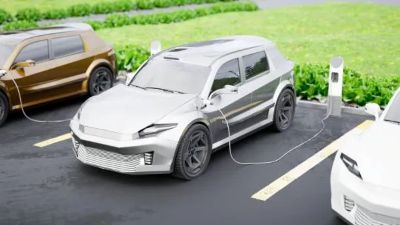


Essential Maintenance Tips for Electric Vehicles: What You Need to Know
As electric vehicles (EVs) become more popular, drivers often wonder how their maintenance compares to traditional internal combustion engine (ICE) vehicles. While EVs are celebrated for their lower maintenance needs, they still require attention to certain components to ensure optimal performance and longevity. This guide explores key maintenance tasks for electric vehicles, covering everything from battery care to tire rotations, and highlights the differences between EV and ICE vehicle upkeep.As a leading EV charger manufacturer in China, Topper Company provides reliable electric vehicle charging station equipment and comprehensive solutions.
The battery is the heart of an electric vehicle, and its care is crucial for performance and lifespan. Modern EV batteries typically last between 12 and 15 years in moderate climates. However, extreme temperatures—either very high or low—can shorten battery life to 8 to 12 years.
Avoid Extreme Temperatures: Prolonged exposure to very high or low temperatures can degrade the battery. Parking in a garage or shaded area can help.
Maintain Optimal Charge Levels: To preserve battery health, keep the charge between 20% and 80% for regular use. Avoid charging to 100% or letting it drop to 0%.
Use Fast Charging Sparingly: Frequent use of fast chargers can stress the battery. For regular use, opt for Level 2 charging.
Regular Software Updates: Many EVs offer over-the-air updates to optimize battery performance. Ensure your vehicle’s software stays current to improve efficiency.
Like any vehicle, EVs require regular tire maintenance. EVs tend to be heavier due to their battery packs, which can cause more wear on the tires. Regular tire checks, rotations, and proper inflation are essential for safety and efficiency.
Check Tire Pressure: Proper tire pressure helps improve efficiency and extends tire life. Check the pressure regularly, especially before long trips.
Rotate Tires: Rotating the tires every 6,000 to 8,000 miles ensures even wear and optimal performance.
Monitor Tire Tread: Check the tread regularly to ensure the tires are safe and provide adequate traction.
EVs typically use regenerative braking, which slows the vehicle down by converting kinetic energy into electricity, reducing wear on traditional braking components. However, EVs still have conventional brake pads and discs that need attention.
Check Brake Pads: Even though regenerative braking reduces wear, it’s still important to check the brake pads periodically for wear, especially on vehicles that don’t use regenerative braking as heavily.
Brake Fluid: Like in ICE vehicles, brake fluid should be replaced every 2 years to maintain braking performance.
EVs use cooling systems to maintain optimal battery and motor temperatures. Just like an ICE vehicle’s radiator, the EV cooling system should be checked periodically to ensure proper function and prevent overheating.
Check Coolant Levels: The coolant system should be inspected regularly, especially if you notice any decrease in battery performance or cooling efficiency.
Flush and Replace Coolant: Every 5 to 10 years, depending on manufacturer recommendations, the coolant should be flushed and replaced to prevent buildup and overheating.
Modern EVs are heavily dependent on software to manage everything from battery performance to driving dynamics. Regular updates ensure the vehicle continues to operate efficiently.
Stay Updated: Many EVs receive over-the-air software updates that improve performance and add features. Ensure your vehicle’s software is updated as new versions become available.
While EVs require less maintenance than ICE vehicles, regular inspections are still essential to keep the vehicle running smoothly. A certified technician should perform periodic checks on the electrical system, tires, brakes, and other key components.
While EVs require less maintenance compared to traditional vehicles, they still need attention, particularly to components like the battery, tires, and cooling system. Following the tips outlined above can help extend the life of your EV and keep it performing at its best. With fewer moving parts and no oil changes required, electric vehicle upkeep is generally simpler, but regular care will ensure you enjoy trouble-free driving for years to come.Know more about Google SEO Directory
